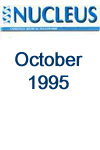Of his medical background we know virtually nothing, but his writings give away some characteristics of the gifted clinician. He was a meticulous and accurate observer, who checked and rechecked the minute details of his records. At the beginning of his Gospel he writes that he had 'carefully investigated everything from the beginning' (Lk 1:3). It is apparent that he had talked at length to many eyewitnesses and kept careful records of his research. Over the last century archaeological investigations in the Middle East have confirmed Dr Luke's remarkable and detailed accuracy on several occasions. So he doesn't employ a 'broad brush' when writing his historical records. He has painstakingly selected his material from a mass of eye-witness data, and we can be confident that every word has been chosen with meticulous care.
He was an educated man. As a physician he belonged to a literate elite who had the benefit of an extensive classical education. According to biblical scholars his command of the Greek language is excellent, and he writes stylishly for an educated and secular audience, as a gentile for Gentiles. Michael Wilcox writes, 'Had there been coffee tables in the homes of the Roman Empire, they would have been one destination which Luke would have wanted his books to reach'. Unlike the other Gospel writers, who were mere country bumpkins, fishermen and tax collectors, Luke writes as a sophisticated man of letters.
Above all he was fascinated by the human condition in all its complexity and ambiguity. It's perhaps this aspect of his writings which tells us most about the author. Of all four Gospels, Luke's is the one which emphasises both the compassionate humanity of Christ and the all-too-human frailty of those he came to save. Across the screen of his Gospel a series of individual portraits flash, each one a recognisable human being. Luke takes particular delight in portraying the socially inferior as well as the powerful. He depicts prostitutes, children, cripples and other riff-raff with as much sympathetic detail as rich men and Pharisees. In comparison to the other Gospel writers he places much more emphasis on the role of women in Jesus' life, remarkable in a time and culture that tended to despise women. Unlike many physicians, then and now, Luke was not merely interested in the social elite. His writings do not betray the class consciousness and arrogance of so many professionals.
So Dr Luke comes across as a remarkable man and a gifted observer. He was a professional healer, and he had a professional interest in the eye-witness accounts about Jesus. In Greek, the word sozo can mean both 'to save' and 'to heal' and it's hardly surprising that this word crops up much more frequently in Luke's writings than in the other Gospels. Perhaps Luke was fascinated by the ambiguity and the subtlety of the word sozo. He recognised that in the ministry of Jesus physical healing and spiritual salvation went hand-in-hand. In his Gospel he tells the story of a saviour/healer, a man who confronted both physical disease and spiritual oppression with unique power and authority. As an intelligent and thoughtful man Dr Luke must have reflected on his own medical practice in the light of his research into the story of Jesus. There's certainly no hint from the New Testament that Luke gave up his medical activities as a result of his conversion to Christianity. It was probably Luke who was the source of Paul's advice to the young man Timothy to 'use a little wine because of your stomach and your frequent illnesses' (1 Tim 5:23). Paul refers to him elsewhere as the 'beloved physician' and it seems that he had a prominent role in the early church.
But what can we, as modern health professionals, learn from Dr Luke's writings? How should they affect us as we reflect about our own calling in the medical world. The aim of the next article is to look through the eyes of Dr Luke at Jesus, the Great Physician, and ask how we can learn to imitate him more effectively in our own professional lives.































